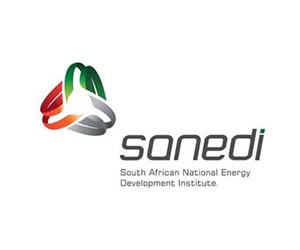“May is Energy Month, a time when the South African government and all authorities involved in energy renew their call to South Africans to conserve energy,” says Dr Thembakazi Mali, interim CEO, South African National Energy Development Institute (SANEDI).
“However it is not just conservation that must concern us but also innovation in the energy business to create opportunities in a number of areas, including business development, job creation, improved energy efficiency and more. The current electricity crisis must refocus our attention on the need to be more sustainable and more efficient.
“There are huge opportunities for digitalisation and other disruptive technologies in the renewable energy sector, increasing installations, creating demand for new jobs and uplifting the local economy. If we take the whole sustainable energy drive seriously and incorporate Industry 4.0 technologies and upskill people, we will stimulate growth of a completely new industry and all that it represents.
“Corporates and small business need to take responsibility to affect change in sustainable energy. Creating awareness at every level of society is a priority, about not only electricity and energy, but also about water and waste too – everything is integrated and resources are limited. Companies of varying sizes can also look at adopting policies such as ISO 50001, which supports organisations in all sectors to use energy more efficiently through the development of an energy management system. It helps people be aware of what they are doing and identify opportunities to improve efficiencies and reduce waste.
“There has been a dramatic increase in the use of rooftop PV installations in buildings of all types – shopping malls, offices, municipalities, hotels and homes – and its incorporation into new building designs, which is very positive. There has also been an encouraging swing towards thermal passive design, where the orientation of the building, and features such as insulation, location, layout, window size and placement, and shading, are all taken into account at the design stage of the building, to reduce dependence on the national grid.
“These growth points notwithstanding, more focus needs to be given to R&D in the renewable energy and energy efficiency sectors, which has experienced an unfortunate reduction in funding in recent years, because there have just been an overwhelming number of other pressing social areas demanding R&D spend. Some South African universities and TVET colleges are recognising this need for sustainable energy R&D and are trying to do more with limited funds.
“There is tremendous value to be gained in energy collaboration across Africa, as the energy challenges that South Africa is facing are not unique in the African context. Events, such as the African Utility Week to beheld in Cape Town from the 14th to the 16th of May 2019, which has been bringing industry stakeholders together for many years, encourages learning from each other. There has been a definite growth in the collaborative attitude towards improving energy efficiency among many African countries, with a number of initiatives being established, such as the Southern African Centre for Renewable Energy and Energy Efficiency (SACREE), in Namibia.
“Looking ahead, the ideal energy solution for the African continent is a combination of energy carriers. Gas must play a role, as must solar and wind, which we have in abundance in different areas in South Africa. We believe all three are the way forward for the continent and will avoid a situation where all energy eggs are in a single basket.
“This month should mark the start of a year long effort to conserve energy at home, in the business and at a national level. We encourage all South Africans to make Energy Month become an Energy Year,” concludes Mali.










